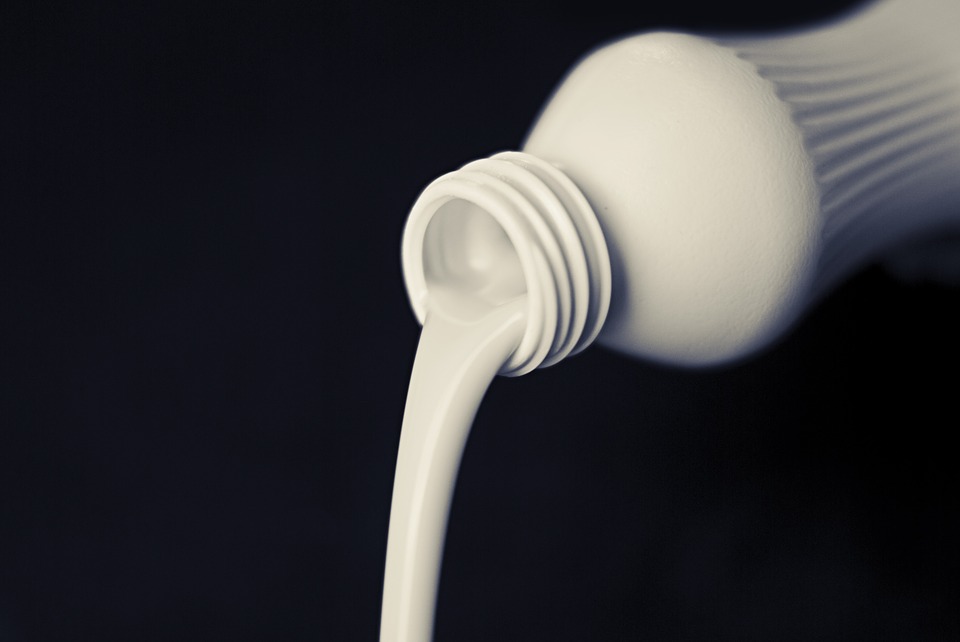The age-old question of whether cats can safely enjoy a glass of milk has sparked countless debates among pet owners. While the image of a cat lapping up a saucer of milk might seem endearing, the reality is more complex. This article delves into the intricacies of feline digestion and the potential risks associated with cow's milk consumption, providing a comprehensive guide to understanding what's best for your feline friend.
Part 1: The Science Behind Feline Digestion

1.1 Lactase Deficiency: A Key Factor
- Cats, like many mammals, experience a decline in lactase production as they age. Lactase is the enzyme responsible for breaking down lactose, the sugar found in milk.
- This decline, known as lactase deficiency, leads to lactose intolerance. Without sufficient lactase, lactose remains undigested in the intestines, triggering a cascade of digestive issues.
- The severity of lactose intolerance varies among cats, with some individuals showing milder symptoms than others.
1.2 The Role of Gut Bacteria in Lactose Digestion
- While lactase is the primary enzyme responsible for lactose digestion, certain gut bacteria can also contribute to its breakdown.
- However, the bacteria's ability to break down lactose is limited, and the undigested lactose often overwhelms their capacity.
Part 2: The Consequences of Lactose Intolerance in Cats

2.1 Digestive Upset: A Common Outcome
- Diarrhoea is a frequent symptom of lactose intolerance in cats, often accompanied by loose, watery stools.
- Vomiting can occur as the body attempts to expel the undigested lactose, causing further discomfort.
- Abdominal cramps and bloating are also typical due to the fermentation of lactose in the gut, generating gas and pressure.
2.2 Dehydration: A Serious Concern, Especially for Kittens
- Chronic diarrhoea, a common consequence of lactose intolerance, can lead to dehydration, particularly in kittens whose smaller bodies are more susceptible to fluid loss.
- Dehydration can weaken the immune system, making kittens more vulnerable to infections.
- Severe dehydration can be life-threatening if not addressed promptly.
2.3 Nutritional Deficiencies: Compromising Growth and Health
- The digestive upset associated with lactose intolerance can hinder the absorption of essential nutrients, potentially leading to nutrient deficiencies.
- These deficiencies can compromise growth, development, and overall health, affecting a cat's energy levels, bone density, and immune function.
Part 3: The Nutritional Imbalance: Cow's Milk vs. Feline Needs
3.1 A Mismatch in Nutritional Content
- Cow's milk is primarily designed for calves and lacks the essential nutrients cats require for optimal health. While it might seem like a good source of calcium, the calcium-to-phosphorus ratio in cow's milk is not ideal for cats.
- Cats have specific nutritional requirements that are different from those of other mammals. Their diet should be rich in protein and taurine, an amino acid essential for heart health and vision.
3.2 The High Fat Content: A Potential Health Risk
- Cow's milk is generally high in fat, which can contribute to obesity and pancreatitis in cats.
- Obesity can lead to various health problems, including joint pain, diabetes, and cardiovascular disease. Pancreatitis, an inflammation of the pancreas, can be life-threatening.
3.3 Urinary Tract Issues: A Potential Side Effect
- The calcium-to-phosphorus ratio in cow's milk can potentially contribute to urinary tract problems in cats, such as the formation of urinary stones.
- These stones can cause pain, discomfort, and even blockages in the urinary tract, requiring veterinary intervention.
Part 4: Exploring Safe Alternatives to Cow's Milk
4.1 Cat-Specific Milk Replacers: Providing Essential Nutrients
- Milk replacers specifically designed for kittens are readily available and offer a safe and nutritious alternative to cow's milk. These formulas are formulated to meet the unique dietary needs of kittens, providing essential vitamins, minerals, and essential fatty acids.
- They are also easily digestible and lactose-free, minimizing the risk of digestive upset.
- These milk replacers are particularly important for orphaned kittens or kittens whose mothers are unable to provide adequate milk.
4.2 Goat's Milk: A Potential Option, But With Cautions
- Goat's milk is often touted as a suitable alternative to cow's milk due to its lower lactose content. However, it's essential to note that goat's milk still contains lactose, and some cats may still experience digestive issues.
- It's crucial to choose goat's milk specifically designed for cats, as some varieties contain additives that can be harmful.
4.3 Lactose-Free Cow's Milk: A Less Risky Option, But With Limitations
- Lactose-free cow's milk can be another alternative, but it's essential to choose a brand specifically designed for cats. Some lactose-free milk varieties contain additives that can be harmful to cats.
- It's important to remember that lactose-free cow's milk still lacks the essential nutrients that cats require and may still contain high levels of fat.
4.4 Water: The Best and Safest Choice for Hydration
- Water remains the best and safest option for hydration, ensuring your cat stays adequately hydrated without any risks associated with lactose or other potential irritants.
- Provide your cat with fresh, clean water throughout the day, ensuring access to multiple water bowls in different locations to encourage frequent drinking.
Part 5: The Occasional Indulgence: Is It Ever Okay?
5.1 The Risk vs. Reward Equation
- If your cat is lactose tolerant, an occasional small amount of cow's milk might be acceptable as a treat.
- However, it's crucial to monitor your cat closely for any signs of digestive upset after consuming cow's milk.
- Even lactose-tolerant cats can develop sensitivities to milk over time.
5.2 Individual Tolerance: A Factor to Consider
- The tolerance to lactose varies significantly among cats. Some cats might be able to tolerate small amounts of cow's milk without any issues, while others might experience digestive upset even with a tiny drop.
- It's always best to err on the side of caution and avoid offering cow's milk regularly, regardless of your cat's apparent tolerance.
5.3 Consultation With a Veterinarian: Seeking Professional Guidance
- If you have any doubts or concerns about your cat's tolerance to cow's milk, it's always advisable to consult with a veterinarian.
- Your veterinarian can assess your cat's individual needs and provide personalized advice regarding dietary choices based on their age, health history, and any existing sensitivities.
Part 6: FAQs: Addressing Common Queries
6.1 Q: Can kittens drink cow's milk?
A: Kittens are particularly vulnerable to lactose intolerance due to their immature digestive systems. It's crucial to provide kittens with specially formulated milk replacers designed for their needs. Cow's milk can lead to severe digestive upset, dehydration, and nutritional deficiencies.
6.2 Q: Is goat's milk better for cats than cow's milk?
A: Goat's milk has a lower lactose content than cow's milk, making it a potentially safer alternative. However, it's not a perfect solution, as it still contains lactose and may not provide all the essential nutrients cats require. It's essential to choose goat's milk specifically designed for cats and monitor your cat for any digestive issues.
6.3 Q: My cat loves cow's milk, is it okay to give him some?
A: While your cat might enjoy the taste, it's not in their best interest to have cow's milk regularly. Even if your cat seems to tolerate it, the long-term consequences can be detrimental to their health. It's always best to choose safe and nutritious alternatives.
6.4 Q: How can I tell if my cat is lactose intolerant?
A: Watch out for signs such as diarrhoea, vomiting, abdominal cramps, bloating, gas, and flatulence after your cat consumes cow's milk. If you notice any of these symptoms, it's best to discontinue offering cow's milk.
6.5 Q: What are the best alternatives to cow's milk for cats?
A: Water is the best and safest option for hydration. For kittens, cat-specific milk replacers are essential for growth and development. If your adult cat seems to crave milk, consider offering them a small amount of lactose-free milk specifically designed for cats, but only as an occasional treat and always monitor for any adverse reactions.
6.6 Q: My cat is an indoor cat, does this affect his need for milk?
A: Indoor cats have a slightly different nutritional needs from outdoor cats, but it doesn't change the fact that cow's milk is not a suitable food for them. They still require a balanced diet specifically formulated for cats, and milk should be avoided.
6.7 Q: Can I give my cat milk as a reward or treat?
A: It's generally not a good idea to use milk as a reward or treat. It's best to stick to cat-specific treats that are designed to be healthy and palatable.
6.8 Q: How much cow's milk is too much for a cat?
A: Even a small amount of cow's milk can cause digestive upset in lactose-intolerant cats. It's best to avoid offering cow's milk altogether and opt for safe and nutritious alternatives.
Part 7: Final Thoughts: A Healthy Diet for a Happy Cat
In conclusion, while the image of a cat enjoying a saucer of milk might be charming, it's crucial to remember that cow's milk is not a suitable drink for cats. Its lactose content and nutritional imbalances can lead to digestive issues, dehydration, and long-term health problems. By choosing safe and nutritious alternatives like water, cat-specific milk replacers, and a balanced diet specifically formulated for cats, you can ensure your feline companion enjoys a happy and healthy life.
Everyone is watching

Are Cat Ribs Flexible? Understanding Their Anatomy
CATS & KITTENSThis article delves into the fascinating world of feline anatomy, exploring the flexibility of cat ribs and ho...

Can Cats Eat Bananas? (Everything You Need to Know)
CATS & KITTENSThis article dives into the intriguing question of whether cats can safely enjoy the sweet, yellow fruit, bana...

Cat Lifespan: How Long Do Cats Live?
CATS & KITTENSThis comprehensive guide explores the factors influencing the lifespan of our feline companions, providing ins...

Can Cats Get COVID-19? What You Need to Know
CATS & KITTENSThis article will delve into the fascinating world of feline COVID-19 susceptibility. We'll explore whether ca...

Can Cats Eat Eggs? A Complete Guide to Egg Safety for Your Feline Friend
CATS & KITTENSWhen it comes to treating our furry companions, we all want to ensure we're doing what's best for them. Eggs...
